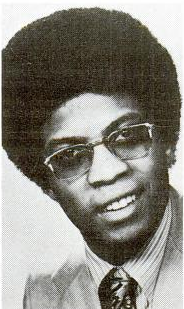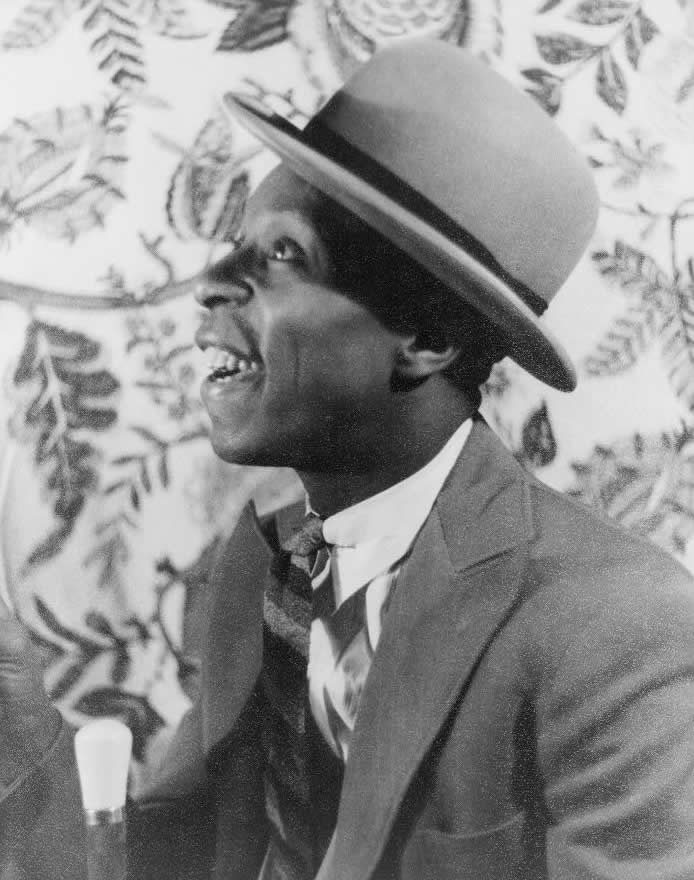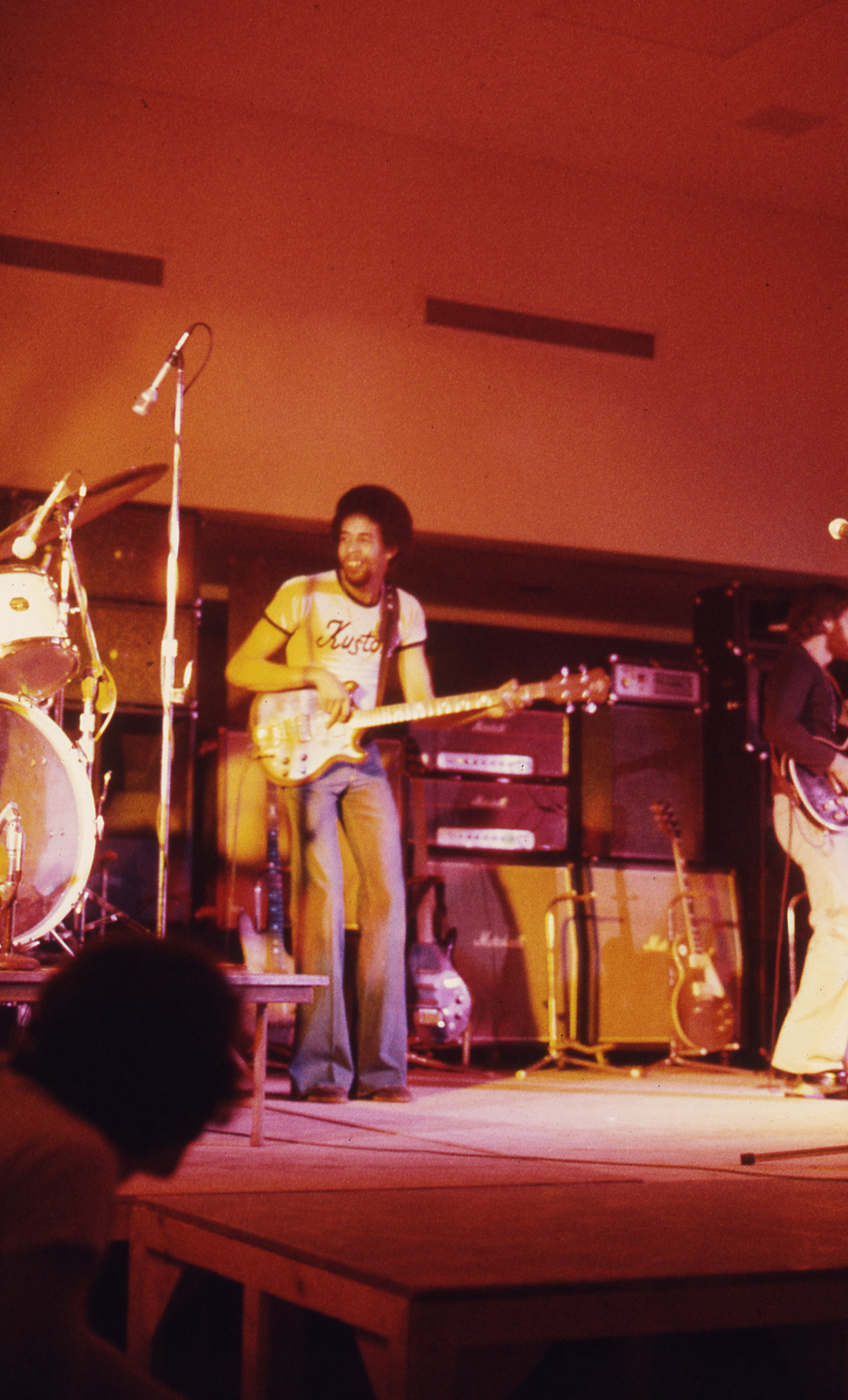|
Gershwin's World
''Gershwin's World'' is a studio album by the American jazz pianist Herbie Hancock. Prominent guests include Joni Mitchell, Kathleen Battle, Stevie Wonder, Wayne Shorter and Chick Corea. It contains songs written by George and Ira Gershwin. It features several prominent musicians, including James Carter, Cyro Baptista, Kenny Garrett, Stanley Clarke, and the Orpheus Chamber Orchestra. Track listing #"Overture (Fascinating Rhythm)" #"It Ain't Necessarily So" #" The Man I Love" (feat. Joni Mitchell) #"Here Come De Honey Man" #"St. Louis Blues" (feat. Stevie Wonder) #"Lullaby" #"Blueberry Rhyme" #"It Ain't Necessarily So Interlude" #"Cotton Tail" #" Summertime" (feat. Joni Mitchell) #"My Man's Gone Now" #" Prelude In C# Minor" #" Concerto For Piano And Orchestra In G, 2nd Movement" (Maurice Ravel) #" Embraceable You" Personnel * Alex Al– upright bass * Toby Appel – viola * Cyro Baptista – percussion * Kathleen Battle – soprano, vocals * Ronnie Bauch – violin * Martha C ... [...More Info...] [...Related Items...] OR: [Wikipedia] [Google] [Baidu] |
Herbie Hancock
Herbert Jeffrey Hancock (born April 12, 1940) is an American jazz pianist, keyboardist, bandleader, and composer. Hancock started his career with trumpeter Donald Byrd's group. He shortly thereafter joined the Miles Davis Quintet, where he helped to redefine the role of a jazz rhythm section and was one of the primary architects of the post-bop sound. In the 1970s, Hancock experimented with jazz fusion, funk, and electro styles, utilizing a wide array of synthesizers and electronics. It was during this period that he released perhaps his best-known and most influential album, ''Head Hunters''. Hancock's best-known compositions include " Cantaloupe Island", " Watermelon Man", " Maiden Voyage", and " Chameleon", all of which are jazz standards. During the 1980s, he enjoyed a hit single with the electronic instrumental " Rockit", a collaboration with bassist/producer Bill Laswell. Hancock has won an Academy Award and 14 Grammy Awards, including Album of the Year for his 200 ... [...More Info...] [...Related Items...] OR: [Wikipedia] [Google] [Baidu] |
Ira Gershwin
Ira Gershwin (born Israel Gershovitz; December 6, 1896 – August 17, 1983) was an American lyricist who collaborated with his younger brother, composer George Gershwin, to create some of the most memorable songs in the English language of the 20th century. With George, he wrote more than a dozen Broadway shows, featuring songs such as "I Got Rhythm", "Embraceable You", " The Man I Love" and " Someone to Watch Over Me". He was also responsible, along with DuBose Heyward, for the libretto to George's opera ''Porgy and Bess''. The success the Gershwin brothers had with their collaborative works has often overshadowed the creative role that Ira played. His mastery of songwriting continued after George's early death in 1937. Ira wrote additional hit songs with composers Jerome Kern, Kurt Weill, Harry Warren and Harold Arlen. His critically acclaimed 1959 book ''Lyrics on Several Occasions'', an amalgam of autobiography and annotated anthology, is an important source for studying t ... [...More Info...] [...Related Items...] OR: [Wikipedia] [Google] [Baidu] |
Piano Concerto In G (Ravel)
The piano is a stringed keyboard instrument in which the strings are struck by wooden hammers that are coated with a softer material (modern hammers are covered with dense wool felt; some early pianos used leather). It is played using a keyboard, which is a row of keys (small levers) that the performer presses down or strikes with the fingers and thumbs of both hands to cause the hammers to strike the strings. It was invented in Italy by Bartolomeo Cristofori around the year 1700. Description The word "piano" is a shortened form of ''pianoforte'', the Italian term for the early 1700s versions of the instrument, which in turn derives from ''clavicembalo col piano e forte'' (key cimbalom with quiet and loud)Pollens (1995, 238) and '' fortepiano''. The Italian musical terms ''piano'' and ''forte'' indicate "soft" and "loud" respectively, in this context referring to the variations in volume (i.e., loudness) produced in response to a pianist's touch or pressure on the keys: the gr ... [...More Info...] [...Related Items...] OR: [Wikipedia] [Google] [Baidu] |
Three Preludes (Gershwin)
''Three Preludes'' is a collection of short piano pieces by George Gershwin, which were first performed by the composer at the Roosevelt Hotel in New York City in 1926. Each prelude is a well-known example of early-20th-century American classical music, as influenced by jazz. Gershwin originally planned to compose 24 preludes called ''The Melting Pot'' for this group of works. The number was reduced to seven in manuscript form, and then reduced to six in public performance, and further decreased to three when first published in 1926. Two of the remaining preludes not published were rearranged for solo violin and piano and published as ''Short Story''. Of the other two, the Prelude in G was eliminated by the publisher because somewhat similar music had already appeared in Gershwin's Concerto in F. The other was excluded for unknown reasons. Gershwin dedicated his Preludes to friend and musical advisor Bill Daly. The pieces have been arranged for solo instruments, small ense ... [...More Info...] [...Related Items...] OR: [Wikipedia] [Google] [Baidu] |
My Man's Gone Now
"My Man's Gone Now" is an aria composed by George Gershwin, with lyrics by DuBose Heyward, written for the opera ''Porgy and Bess'' (1935). Sung in the original production by Ruby Elzy, it has been covered by many singers, notably Ella Fitzgerald (on the 1958 ''Porgy and Bess'' album), Leontyne Price, Audra McDonald (who would later sing the part of Bess), Nina Simone, Sarah Vaughan, and Shirley Horn, among others. In the opera In the opera, the aria is sung by Serena, the grieving widow, at her husband Robbins's wake. He has been murdered by Crown, a drunken stevedore, during a crap game played in the courtyard of Catfish Row. She sings that she will no longer hear his footsteps coming up stairs and that "ol man sorrow" will be her companion from now on, telling her she is old. The aria's music and lyrics refer to popular African American spiritual songs and are accompanied by melodic wails which are picked up by the chorus. Versions *Leontyne Price, who regularly played Bess ... [...More Info...] [...Related Items...] OR: [Wikipedia] [Google] [Baidu] |
Summertime (George Gershwin Song)
"Summertime" is an aria composed in 1934 by George Gershwin for the 1935 opera ''Porgy and Bess''. The lyrics are by DuBose Heyward, the author of the novel '' Porgy'' on which the opera was based, and Ira Gershwin. The song soon became a popular and much-recorded jazz standard, described as "without doubt ... one of the finest songs the composer ever wrote ... Gershwin's highly evocative writing brilliantly mixes elements of jazz and the song styles of blacks in the southeast United States from the early twentieth century". Composer and lyricist Stephen Sondheim characterized Heyward's lyrics for "Summertime" and "My Man's Gone Now" as "the best lyrics in the musical theater". ''Porgy and Bess'' Gershwin began composing the song in December 1933, attempting to create his own spiritual in the style of the African American folk music of the period. Gershwin had completed setting DuBose Heyward's poem to music by February 1934, and spent the next 20 months completing a ... [...More Info...] [...Related Items...] OR: [Wikipedia] [Google] [Baidu] |
Cotton Tail
"Cotton Tail" is a 1940 composition by Duke Ellington. It is based on the rhythm changes from George Gershwin's "I Got Rhythm". The first Ellington recording (4 May 1940) is notable for the driving tenor saxophone solo by Ben Webster. Originally an instrumental, "Cotton Tail" later had lyrics written for it by Ellington. Later, more lyrics were written, based on the 1940 recording, by Jon Hendricks, and recorded by Lambert, Hendricks and Ross. The 1941 Soundie gives the title as "Hot Chocolate," with "Cotton Tail" below it in parentheses and smaller letters, but this was likely done by the producer, as that title does not seem to appear anywhere else between the original record's release and this production. Slide Hampton's arrangement of "Cotton Tail" on Dee Dee Bridgewater's 1997 album '' Dear Ella'' won him the Grammy Award for Best Instrumental Arrangement Accompanying Vocalist(s) in 1998. "Cotton Tail" is the theme song for "The Art of Jazz," a music history radio program ho ... [...More Info...] [...Related Items...] OR: [Wikipedia] [Google] [Baidu] |
The Man I Love (song)
"The Man I Love" is a popular standard in AABA form with music by George Gershwin and lyrics by his brother Ira. Part of the 1924 score for the Gershwin musical comedy '' Lady, Be Good'', the song was deleted from that show and put into the Gershwins' 1927 government satire '' Strike Up the Band'' (where it appears as "The Man I Love" and "The Girl I Love"), which closed out-of-town. It was considered for, then rejected from, the 1928 Ziegfeld hit '' Rosalie''. Covers Like many songs from George and Ira Gershwin, "The Man I Love" is considered part of the Great American Songbook and was covered on stage and on record by many artists. It was recorded by Kate Bush in 1994 for Larry Adler's '' The Glory of Gershwin'' tribute album and released as a single, which reached number 27 on the British charts. In 2004, the Brazilian singer-songwriter Caetano Veloso who identifies himself as bisexual recorded a gay version of the song for his English-language album ''A Foreign Sound'' ... [...More Info...] [...Related Items...] OR: [Wikipedia] [Google] [Baidu] |
It Ain't Necessarily So
"It Ain't Necessarily So" is a popular song with music by George Gershwin and lyrics by his brother Ira Gershwin. The song comes from the Gershwins' opera ''Porgy and Bess'' ( 1935) where it is sung by the character Sportin' Life, a drug dealer, who expresses his doubt about several statements in the Bible. The song's melody also functions as a theme for Sportin' Life's character. Controversy The song is controversial for casting doubt on the veracity of the Bible in its central lyrics: "It ain't necessarily so, It ain't necessarily so, The t'ings dat yo' li'ble, To read in de Bible, It ain't necessarily so." The song was criticized by the composer Hall Johnson for depicting African Americans as unfaithful. Influence of Jewish blessings The first and most direct example of influence occurs at the start of the song; the melody and phrasing is nearly identical to the blessing incanted before reading from the Torah. The words "It ain't necessarily so" stand in place of ''Bar'c ... [...More Info...] [...Related Items...] OR: [Wikipedia] [Google] [Baidu] |
Fascinating Rhythm
"Fascinating Rhythm" is a popular song written by George Gershwin in 1924 with lyrics by Ira Gershwin. It was first introduced by Cliff Edwards, Fred Astaire and Adele Astaire in the Broadway musical '' Lady Be Good.'' The Astaires also recorded the song on April 19, 1926, in London with George Gershwin on the piano (English Columbia 3968 or 8969). Many recorded versions exist. One of the rarest recordings is by Joe Bari (a pseudonym of Anthony Dominick Benedetto, later better known as Tony Bennett) for Leslie Records in 1949 and issued as catalog number 919 with "Vieni Qui" as the flip side. Having rerecorded it as a duet with Diana Krall in 2018 for their duet album ''Love Is Here to Stay'', he currently holds the Guinness World Record for the "longest time between the release of an original recording and a re-recording of the same single by the same artist". "Fascinating Rhythm" inspired the riff to the 1974 Deep Purple song "Burn". The 1926 Astaire/Gershwin version and a ... [...More Info...] [...Related Items...] OR: [Wikipedia] [Google] [Baidu] |
Orpheus Chamber Orchestra
The Orpheus Chamber Orchestra (founded 1972) is a classical music chamber orchestra based in New York City. They have won several Grammy Awards. The orchestra is known for its collaborative leadership style in which the musicians, not a conductor, interpret the score. History The Orpheus Chamber Orchestra was founded in 1972 by Julian Fifer and a group of young musicians. With 71 albums, including the Grammy Award-winning ''Shadow Dances: Stravinsky Miniatures'', and 42 commissioned and premiered original works, Orpheus rotates musical leadership roles for each work. Performing without a conductor, Orpheus presents an annual series at Carnegie Hall and tours extensively to major national and international venues. Collaborators of Orpheus include Fazıl Say, Isaac Stern, Gidon Kremer, Itzhak Perlman, Gil Shaham, Yo-Yo Ma, Mischa Maisky, Emanuel Ax, Richard Goode, Alicia de Larrocha, Radu Lupu, Martha Argerich, Alfred Brendel, Horacio Gutierrez, Murray Perahia, Peter Serkin, ... [...More Info...] [...Related Items...] OR: [Wikipedia] [Google] [Baidu] |
Stanley Clarke
Stanley Clarke (born June 30, 1951) is an American bassist, film composer and founding member of Return to Forever, one of the first jazz fusion bands. Clarke gave the bass guitar a prominence it lacked in jazz-related music. He is the first jazz-fusion bassist to headline tours, sell out shows worldwide and have recordings reach gold status. Clarke is a 5-time Grammy winner, with 15 nominations, 3 as a solo artist, 1 with the Stanley Clarke Band, and 1 with Return to Forever. Clarke was selected to become a 2022 recipient of the National Endowment for the Arts Jazz Masters Fellowship. A Stanley Clarke electric bass is permanently on display at the National Museum of African American History and Culture in Washington, D.C. Music career Early years Clarke was born on June 30, 1951 in Philadelphia. His mother sang opera around the house, belonged to a church choir, and encouraged him to study music. He started on accordion, then tried violin. But he felt awkward holding such a ... [...More Info...] [...Related Items...] OR: [Wikipedia] [Google] [Baidu] |



